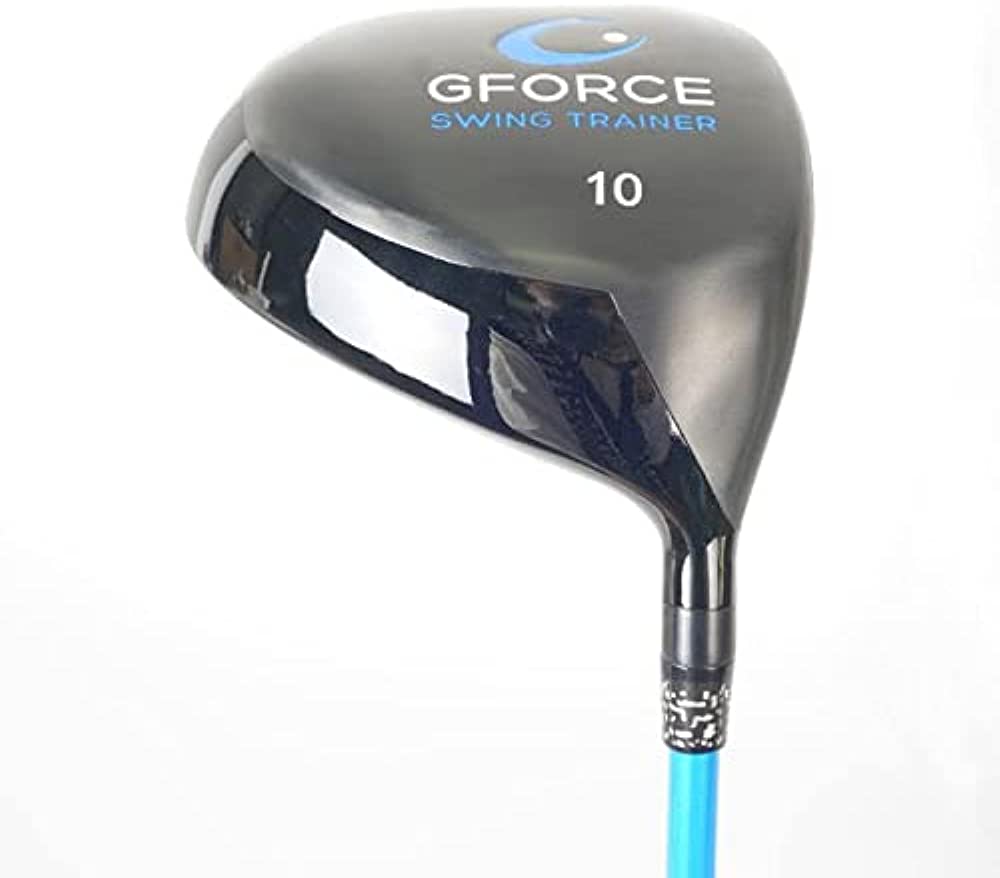Reviving Your Golf Game with Degenerative Disc Disease: Expert Tips
Yes, you can play golf with degenerative disc disease as long as you take the necessary precautions. Degenerative disc disease should not stop you from playing golf, but it is important to be mindful of your body and take proper steps to prevent further damage.
Degenerative disc disease is a condition that affects the discs between the vertebrae of the spine, causing pain and discomfort. It is a common condition among older individuals, but it can also affect younger people due to injury or other factors.
Golf is a popular sport that is enjoyed by millions of people around the world. It is a low-impact activity that can be beneficial for individuals with degenerative disc disease, as long as they are careful and take the necessary precautions.

Understanding Ddd And Its Impact On Golf Game
Degenerative disc disease (ddd) is a common condition that affects the spine leading to pain and discomfort. Although not a contraindication per se, golfers with ddd need to be careful when playing golf. Here are some tips to help golfers with ddd understand how to manage their condition and improve their performance on the course:
Explanation Of Ddd And How It Affects The Spine
Ddd is a degenerative condition that affects the discs that act as cushions between the vertebrae in the spine. As a result of aging or injury, the discs lose their elasticity, become thinner, and may even collapse, leading to nerve compression and pain in the back, neck, arms, and legs.
Discussion On How Ddd Can Lead To Pain And Discomfort In Golfers
Golfers with ddd may experience pain and discomfort that may negatively affect their golf game. The pain can be felt in the back, neck, arms, and legs, and can interfere with their golf swings, posture, and stance. Golfers with ddd need to be mindful of their condition so that they do not strain themselves while playing the game.
Tips On How To Recognize Symptoms Of Ddd That Affect A Golfer’S Performance
It is essential for golfers to recognize the symptoms of ddd that can affect their game and seek medical attention. Here are five common symptoms to watch out for:
- Back pain that gets worse when leaning forward or standing for long periods
- Pain that starts from the neck and spreads to the shoulders and arms
- Numbness or tingling sensation in the arms or legs
- Weakness in the arms or legs that may lead to reduced mobility
- Muscle spasm or stiffness in the back, neck, or legs
How Ddd Affects The Golfer’S Swing, Posture, And Stance
Ddd can affect how a golfer swings, stands, and postures while playing golf. The condition can reduce a golfer’s range of motion, making it challenging to rotate the trunk to generate power in the swing. Ddd can also affect a golfer’s posture and lead to a forward-leaning stance, causing strain on the lower back and hampering the golfer’s swing.
It is crucial for golfers with ddd to improve their swing technique and develop good posture to avoid pain, discomfort, and injury.
Playing golf with ddd is not impossible, but it requires caution and proper management of the condition. By understanding the symptoms, watching their swing, stance, and posture, and seeking medical attention when necessary, golfers with ddd can continue to enjoy this sport without causing further damage to their spine.
Pre-Game And Practice Routines For Golfers With Ddd
Dealing with degenerative disc disease (ddd) can be quite challenging, especially if you’re an avid golfer. However, having this condition should not stop you from playing your favorite sport. By preparing ahead of time and executing the right techniques, you can still enjoy playing golf even with ddd.
This article will highlight the pre-game and practice routines that can help you avoid pain and maximize your performance on the green.
Importance Of Pre-Game Preparation For Golfers With Ddd
Preparing your body and mind before a game can help you avoid injury and enhance your performance. As a golfer with ddd, you should focus on pre-game activities that can help you loosen up your muscles and joints. Here are some essential pre-game preparation activities for golfers with ddd:
- Take time to warm up your muscles and joints.
- Monitor your posture, making sure that your back is straight and preventing excessive tilting and twisting.
- Check for proper fitting of your golf clubs, shoes, and accessories to avoid unnecessary tension on your joints and muscles.
Warm-Up Exercises For Golfers With Ddd To Prevent Pain During Practice And Play
Warming up is an essential routine for golfers, and it’s even more critical for those with ddd. Before your game, you need to stretch and loosen your muscles gradually. Engage in these warm-up exercises to help you prevent pain during practice and play:
-perform gentle stretches that engage core muscles, such as the pelvic and back muscles.
-swing lightly with the club to activate your muscles softly.
-engage in low-impact exercises to warm up your body slowly.
-hydrate yourself by drinking water.
How To Properly Stretch Muscles That Are Affected By Ddd
Stretching muscles that are affected by ddd is crucial in preventing pain. However, it’s essential to stretch correctly as improper stretching can cause more harm than good. Here are some tips for stretching muscles affected by ddd:
- Target the pelvic and back muscles for stretching.
- Perform each stretch slowly, holding each position for between 20 and 30 seconds.
- Stretch to the point of tension, not pain.
- Incorporate breathing exercises while stretching.
Golf Course Modifications That Can Help Golfers With Ddd
Modifying your golf course can be an effective way to reduce pain from ddd. Here are different course modifications you can make:
- Use a motorized golf cart to eliminate discomfort when walking around.
- Avoid uphill courses, as they can strain your back.
- Use lightweight golf clubs with oversized grips to reduce the pressure on your joints.
- Use golf shoes that provide excellent arch support to reduce stress on your feet.
Overall, playing golf with ddd takes thoughtful preparation, regular warm-ups, and proper techniques. The tips mentioned above can help you have a comfortable and successful golf game. Remember to take care of your body to ensure that you can enjoy golfing for years to come!
Tips For Improving Golf Swing With Ddd
Golf is a popular sport for all ages, but for those with degenerative disc disease (ddd), it can be a challenge. Ddd is a degenerative condition that affects the spine and can cause discomfort and pain. However, with the right techniques and equipment, golfers with ddd can still enjoy the sport.
In this section, we will explore some tips for improving golf swing with ddd.
How To Modify The Golf Swing To Accommodate Ddd
- Start with a proper warm-up to ensure your muscles are loose
- Choose the right club to minimize the impact on the back
- Adjust your stance to reduce pressure on the lower back
- Use a shorter backswing to reduce torque on the spine
- Consider using a tee to adjust the height of the ball
Explanation Of Proper Body Mechanics During The Golf Swing To Prevent Pain And Discomfort
- Focus on maintaining your spine’s natural curves throughout the swing
- Engage your core muscles to support your back
- Keep your feet grounded and distribute your weight evenly
- Practice proper posture and position your body correctly
- Avoid over-swinging and follow through smoothly
How Golfers With Ddd Can Maximize Their Power And Accuracy Despite Ddd
- Use your hips to generate power rather than your back
- Focus on consistent, smooth swings rather than attempting to hit hard
- Work on your grip and aim to strike the center of the clubface
- Practice your swing frequently to build muscle memory
- Consider taking lessons to improve your technique
How The Right Equipment Can Help Minimize The Impact Of Ddd On The Golf Swing
- Use a golf bag with a stand to avoid bending to pick up your clubs
- Consider using a golf cart to avoid carrying your bag
- Choose clubs with graphite shafts, which tend to be more flexible and less harsh on the back
- Use golf shoes with good arch support to reduce pressure on the feet and back
- Consider using specialized gloves or wrist supports for added stability
By following these tips and using the right equipment, golfers with ddd can still enjoy the sport they love. Remember to always consult with your healthcare provider before engaging in any physical activity, and listen to your body to avoid exacerbating any discomfort.
With the right technique, golf can be a fun and rewarding experience for golfers with ddd.
Pain Management And Post-Game Recovery For Golfers With Ddd
Golf is a popular sport that requires physical and mental agility. People with degenerative disc disease (ddd) may think that golf is not a suitable sport for them. However, with proper pain management and post-game recovery, golfers with ddd can still enjoy the game.
Explanation Of How Golfers With Ddd Can Manage Pain And Discomfort During And After Play
Golfers with ddd may experience pain and discomfort during and after playing. Here are some ways to manage pain and discomfort:
- Warm-up exercises: Taking time to perform light stretches helps to loosen up tight muscles and increase flexibility.
- Choose the right equipment: Golf clubs with graphite shafts instead of steel can reduce shock and vibration, and choosing the right shoes can provide good support.
- Adopt correct posture: Maintaining an upright posture can help prevent back strain. Avoid slouching and twisting while swinging.
- Rest regularly: Avoid playing for extended periods and take breaks in between games, particularly when experiencing pain.
Tips On How To Relieve Pain Caused By Ddd After A Round Of Golf
Golfers with ddd may experience pain and discomfort after playing golf. Here are some ways to relieve pain and promote recovery:
- Cold compresses: Applying a cold compress to the affected area can help reduce inflammation and ease the pain.
- Massage: Massaging the stiff muscles helps ease out tension and improve flexibility.
- Medications: Anti-inflammatory medicines such as ibuprofen can help to reduce inflammation and pain.
- Heat packs: Applying a heat pack to the sore muscles can help promote blood flow and relaxation.
Discussion On How To Speed Up Recovery After Golf Games Or Practices
Golfers with ddd can speed up their recovery time after playing by following these tips:
- Stretching: Perform light stretches before or after golf to improve flexibility and reduce muscle tension.
- Stay hydrated: Drinking water before, during, and after golf helps in keeping the muscles hydrated, supplying oxygen and nutrients to the muscles.
- Take a rest day: Allow the muscles to rest and recover the day after golf.
- Consider physical therapy: Engaging in physical therapy can be effective in addressing the root cause of ddd pain and help alleviate the pain symptoms.
How Pain Management Can Help Golfers Enjoy Their Game Despite Ddd
While ddd can cause pain and discomfort, proper pain management can help golfers enjoy their game. Pain management allows golfers with ddd to:
- Reduce pain and discomfort
- Improve flexibility and mobility
- Reduce the risk of further injury
- Promote faster recovery
Playing golf with ddd is not impossible if the right pain management and post-game recovery techniques are followed. These techniques help promote better flexibility, and mobility and reduce the risk of further injuries allowing golfers to enjoy the game to the fullest.
Frequently Asked Questions Of Can I Play Golf With Degenerative Disc Disease
Can Golf Worsen Degenerative Disc Disease?
Golf can be played with proper technique and precautions. It does not worsen degenerative disc disease.
What Are The Precautions To Follow While Playing Golf With Degenerative Disc Disease?
Some precautions to follow include proper posture and technique, using specialized golf equipment, and taking breaks.
Can Exercise And Physical Therapy Help With Degenerative Disc Disease For Golfers?
Exercise and physical therapy can strengthen muscles and improve flexibility, reducing pain and improving golf performance.
Conclusion
A diagnosis of degenerative disc disease does not mean you have to give up your golf game. However, it is important to consult with your doctor and modify your game accordingly. Opting for proper equipment and techniques can help reduce the risk of further disc degeneration and alleviate pain.
Focus on proper form, stretching, and using a golf cart instead of walking during gameplay. Incorporating low impact exercises, such as yoga or swimming, can also help improve flexibility, strengthen core muscles, and reduce pain. Remember to listen to your body and take breaks, even during gameplay.
With the right modifications, degenerative disc disease should not hold you back from enjoying your favorite sport. Keep in mind that while golf can be a great way to stay active, it should not worsen your condition. Always prioritize your health and well-being over the game.



